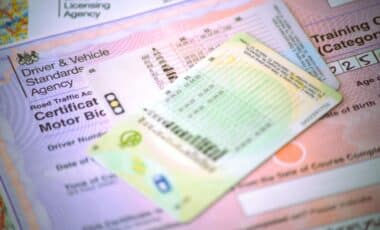The Bank of England has recently announced that it will closely monitor the future of physical cash in the UK, following growing concerns about the implications of businesses rejecting cash payments.
This decision comes as part of a broader effort to assess the impact of cashlessness on society, particularly on vulnerable groups who depend on physical cash for everyday transactions.
A recent report from the Treasury Committee has highlighted the risks posed by a cashless society, specifically for people with learning disabilities, survivors of domestic abuse, and older individuals.
While businesses in the UK are legally allowed to refuse cash payments, the growing trend towards cashless transactions raises questions about financial inclusion. In response, the Bank of England has taken steps to track cash acceptance rates, with the aim of ensuring that vulnerable populations are not left behind in an increasingly digital economy.
Bank of England’s New Survey Approach
As part of its new initiative, the Bank of England has started collecting additional data on cash acceptance. According to the Bank, since January, it has expanded its consumer surveys to include a question about the impact of businesses refusing to accept cash.
The aim is to gain deeper insight into how these decisions affect consumers, particularly in terms of their ability to complete purchases.
The results from early data indicate that when consumers encounter businesses that do not accept cash, a significant proportion are forced to either find an alternative store or abandon their purchase altogether. Specifically, 8% of consumers reported having to go to a different store, while 6% were unable to make their intended purchase.
This data is expected to be a valuable tool for both the Bank of England and the Government in monitoring cash acceptance trends across the UK.
Growing Concerns About the Decline of Cash Acceptance
The Treasury Committee’s report has underscored the increasing concern about the decline in cash acceptance, particularly in key public sectors such as public transport and services funded by local authorities.
Evidence presented by witnesses, including consumer groups and charities, suggests that cashlessness is creating barriers for those who rely on physical cash for essential services.
One of the major concerns highlighted in the report is the potential for a “two-tier society” in which vulnerable individuals—who are often the most at risk—are further disadvantaged by the growing move towards digital-only transactions.
Although the UK Government has stated that there are currently no plans to regulate businesses to ensure they accept cash, the committee suggests that future legislation may be required to protect those who rely on cash.
While the Bank of England’s commitment to continuing its monitoring is seen as a positive first step, the Treasury Committee has called for further action, including the publication of a Financial Inclusion Strategy.
This strategy, they argue, should focus on safeguarding the interests of the most vulnerable members of society, ensuring that cash continues to play a role in the UK’s economy.









